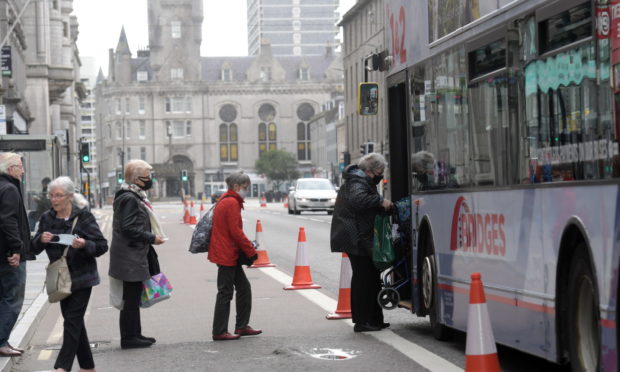When Scotland entered lockdown in March, most of us were hoping (possibly against our better judgment) that we would be back to normal within a couple of weeks.
Instead, months went by, and as the country is now easing restrictions, coming out of lockdown is likely to make many Scots feel apprehensive. If that’s happening to you, don’t worry – it’s completely natural.
As restrictions are easing, there has been a lot of talk about a ‘new normal’. However, whether lockdown has been a positive or a negative experience, most of us are already living our ‘new lockdown normal’. Getting used to homeschooling, working from home, being isolated or having no personal space at all took time. Similarly, coming out of lockdown and once again facing uncertainty will require a period of adjustment.
None of us really have a blueprint for the coming weeks, but we are likely to share some of the same concerns. You may feel anxious about your own safety when returning to work and socialising much more than over the past few weeks. One way of dealing with those anxieties is to focus on the things you can control, for example your own compliance with guidance regarding hand washing, mask wearing and keeping your distance or avoiding bigger crowds.
Give yourself and your family or loved ones time to adjust to yet another new routine. After two months of staying at home, most of us will have developed a lockdown routine. Don’t underestimate the mental health benefits derived from that routine and the sense of certainty it added to surreal times. Having a daily routine is considered to be a key factor when it comes to managing mental health problems – or simply challenging times.
At this time, we are being asked to let go of a routine we have only just established in exchange for a transition period with its own uncertainties. Just as entering lockdown was challenging, so is this new change.
Those who have lost loved ones to Covid-19 are likely to be dealing with feelings of grief for some time, especially if they were unable to ‘say goodbye’, whether in person or during a funeral. Similarly, it is estimated that a quarter of those who had to be treated in intensive care units may suffer with post-traumatic stress disorder after they recover from Covid-19. Frontline workers like medical professionals who have been working overtime for weeks may be nearing a point of burnout.
In any case, returning to a form of normal life may feel overwhelming. Without a clear starting point, it’s almost impossible to tackle huge tasks, so it’s important to break it down into smaller, more achievable steps. If you have been starting your days later than normal, for example, gradually re-introduce your pre-coronavirus routine by setting an alarm in the morning.
Try and change one or two things per day to gradually move to a ‘new normal’ routine. Build in some regular exercise and outdoor time if this has not been a feature for you during lockdown – start off with just short periods and build it into your routine as an important part of managing your feelings and health.
Don’t be afraid to share your feelings with family or close friends. You are likely to find that they are experiencing similar emotions.
Ask for help, whether it is with workplace changes to increased virus protection or feelings of uncertainty, anxiety and grief. More than ever before, mental health support is available online as well as in person.
And don’t forget, every one of us is experiencing a degree of uncertainty at this time: being kind and trying to understand each other has never been more important.
Professor Ewan Gillon is a Chartered Psychologist and Clinical Director of First Psychology Scotland.











